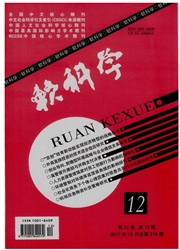

 中文摘要:
中文摘要:
基于制度变迁理论,通过建立政府与微观主体的博弈模型,得出中国的水管理制度变迁是在政府主导下的、强制性的渐进式变迁的结论。其次,以南水北调东线的水管理制度变迁为例,对中国水管理制度的变迁做出前瞻性的描述,提出对南水北调东线工程要采用政府宏观调控、准市场化运作和用水社区共同作用的多元共生的水管理制度安排并探讨了东线“批发-零售”模式的市场化运作模式。
 英文摘要:
英文摘要:
On the basis of institutional change theory, according to the game model between government and individual, the authors draw the conclusion that Chinese institutional change of water management is a government - controlled and a step - by - step process. Then, North Water Transfer Project for example, this paper proves the agement is practical with the control of government, taking the Eastern Route of South - to - institutional arrangement of water manregulation of market and the administration of water users' community. Furthermore, the paper explores the "wholesale- retail" mode of market operation.
 同期刊论文项目
同期刊论文项目
 同项目期刊论文
同项目期刊论文
 期刊信息
期刊信息
